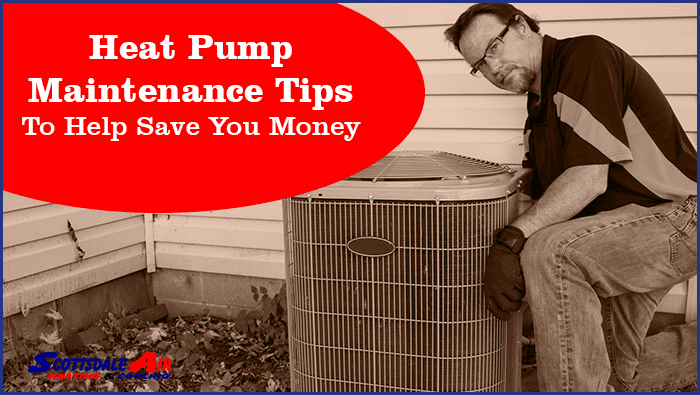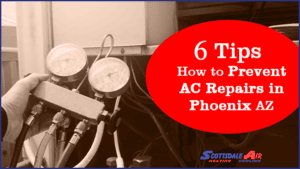Heat pumps are fast becoming a preferred source of heat for many Americans, with over 12.1 million households now using heat pumps.
The fact that these units use electricity is a major selling point for homeowners looking to keep their carbon footprint at a minimum.
Besides, these units tend to have lower running costs compared to heating systems that use fossil fuels.
Modern heat pumps last for about 10 years. But to keep performing at peak levels, these appliances require proper maintenance.
In today’s blog, we highlight five easy heat pump maintenance tips that’ll keep your unit running well and even save you a lot of money in the long run.
1. Clean or Change Your Air Filter Regularly
Your heat pump comes with an air filter, which is typically the first point of contact for air entering the unit.
The main purpose of this air filter is to safeguard the inside of your heat pump from the contaminants found in the air.
These contaminants include dust, hair, fiber, and pet dander.
As air from the outside of the unit passes through the filter, the contaminants it contains are trapped by the filter, so they don’t enter the various parts of the system.
Over time, the air filter accumulates a substantial amount of contaminants from the air it filters.
This buildup can clog the entrance to the pump’s interior. Air may thus be forced to enter via another route, leading to the accumulation of contaminants inside your heat pump, which may cause repair issues.
But that’s not all you need to worry about.
Once your air filter stops working properly, the heated air that the pump circulates inside your home will contain the contaminants that weren’t trapped by the filter.
As a result of poor indoor air quality, health conditions like asthma and allergies are aggravated, leading to expensive medical bills.
The simple solution here is to keep your air filter clean if you use a reusable one.
If the filter isn’t reusable, be sure to change it every three months. It’s a simple heat pump maintenance tip that’ll save you on repair costs and hospital bills.
2. Keep the Unit and Its Surroundings Clean
Another way to care for your heat pump is to keep it as clean as possible.
Wipe off the dust from the surface of the unit, and give the grilles some thorough cleaning.
Gently vacuum along the unit’s grooves or wipe with a damp cloth to keep air flowing efficiently.
Don’t forget about your outdoor unit. Get rid of any organic matter on the unit, such as weeds, leaves, and debris.
Wash the unit down regularly using low-pressure water from your garden hose.
Check the area around your outdoor unit and note anything that may make it dirty.
Hedges and shrubs that are too close need trimming.
Mow the grass around the unit as well.
In the winter, you’ll find that ice and snow build up around and on your outdoor unit.
The solution is to remove this buildup so your unit can work without any difficulty.
3. Avoid Overworking Your Heat Pump
You can keep your heat pump in top shape for a long time by minimizing the amount of work it has to do.
This tip works in all situations, including when you’re doing geothermal heat pump maintenance, pool heat pump maintenance, and water source heat pump maintenance.
Start by going through your home and checking for any leaky doors and windows.
The goal here is to make sure that your home isn’t letting in cold air unnecessarily.
You also want to keep your hot air from escaping through the cracks and openings.
The more hot air escapes or cold air enters your house, the harder your heat pump has to work to keep you comfortable.
As a result, your electric bill will rise. In addition, your system’s lifespan is reduced, which means you have to spend thousands of dollars on heat pump replacement more often than you should.
4. Pay Attention to Your Heat Pump’s Placement
Another heat pump care tip that’ll probably cost you no money is making sure that your unit is placed in the right place.
A leaky gutter above your heat pump will only lead to trouble.
That dripping water can freeze inside your unit during the winter and damage the heat pump’s parts, leading to costly repairs.
Note that heat pumps generally have certain elevation requirements. Experts recommend placing the unit at least four inches off the ground.
This allows for proper drainage under the pump.
5. Schedule Annual Professional Maintenance
Many of the maintenance tips above you can do on your own. But choosing a heating service professional to inspect your unit annually is essential.
Such a professional can identify any potential problems with your heat pump and address them before they escalate into more expensive repair issues.
During a professional heat pump tune up, the HVAC expert will also offer some useful insights into how you can take better care of your specific appliance.
And since you’re working with a licensed expert, you stay in compliance with your warranty requirements.
These Heat Pump Maintenance Tips Can Keep Your Unit in Top Shape
Your heat pump works hard to keep you comfortable during the winter, and it’s only fair that you’d show it some TLC in return.
Follow the simple heat pump maintenance tips we’ve recommended here to help your heat pump serve you well and avoid wasting money on unnecessary repairs or high power bills.
Are you interested in reliable HVAC services in your area? Get in touch with us and learn how we can help.
___________________________________________________________________________________________
Are you looking for the best HVAC company in Paradise Valley AZ? The team at Scottsdale Air Heating & Cooling can service your heating system and help you replace it if needed. Call 480-945-7200 or request service online! ….*Yes, We DO offer Financing Options.
Read more articles about Heating & Cooling:
- 9 of the Most Common Heater Problems in Arcadia AZ
- How to Get the Best Heating Service in Paradise Valley AZ
- Why a Cracked Heat Exchanger is So Dangerous









